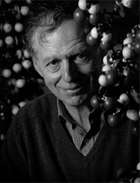Dr. Robert Shapiro
The New York Times article Life After Earth: Imagining Survival Beyond This Terra Firma said
“Cue the Alliance to Rescue Civilization, a group that advocates a backup for humanity by way of a station on the Moon replete with DNA samples of all life on Earth, as well as a compendium of all human knowledge — the ultimate detached garage for a race of packrats. It would be run by people who, through fertility treatments and frozen human eggs and sperm, could serve as a new Adam and Eve in addition to their role as a new Noah.Far from the lunatic fringe, the leaders of the alliance have serious careers: Robert Shapiro, the group’s founder, is a professor emeritus and senior research scientist in biochemistry at New York University; Ray Erikson runs an aerospace development firm in Boston and has been a NASA committee chair; Steven M. Wolfe, as a Congressional aide, drafted and helped pass the Space Settlement Act of 1988, which mandated that NASA plan a shift from space exploration to space colonization, and was executive director of the Congressional Space Caucus; William E. Burrows, an author of several books on space, is the director of the Science, Health and Environmental Reporting Program at N.Y.U.”
Robert Shapiro is cofounder of the Alliance to Rescue Civilization (ARC), which seeks to move comprehensive data about Earth to a man-tended base off the planet to salvage civilization in the event of a near- or long-term catastrophe. He is also Professor Emeritus and Senior Research Scientist in the Department of Chemistry at New York University.
Robert is author or coauthor of over 110 publications, primarily in the area of DNA chemistry. In particular, he and his coworkers have studied the ways in which environmental chemicals can damage our hereditary material, causing changes that can lead to mutations and cancer. His research has been supported by numerous grants from the National Institutes of Health, Department of Energy, National Science Foundation and other organizations.
He earned a BS in chemistry, summa cum laude (1956) from the City College of New York. He earned a MA degree in organic chemistry from from Harvard (1957), and a PhD degree in organic chemistry from Harvard, under the supervision of Nobel Laureate R.B. Woodward (1959), postdoctoral training in DNA chemistry at Cambridge with Nobel Laureate Lord Todd (1959–1960). After an additional year of postdoctoral study at the NYU Medical School, he joined the NYU Chemistry Department in 1961. He has held a Career Development Award from the National Institutes of Health and has been awarded (with physicist Paul Davies) the Trotter Prize in Complexity, Information and Inference for 2004.
In addition to his research, Robert has written four books and several magazine articles for the general public. The books include: Planetary Dreams: The Quest to Discover Life Beyond Earth, Life beyond Earth : the intelligent earthling’s guide to life in the universe (coauthored with Gerald Feinberg), Origins: A Skeptic’s Guide to the Creation of Life on Earth, The Human Blueprint: The Race to Unlock the Secrets of Our Genetic Script.
He authored A new rationale for returning to the Moon? Protecting civilization with a sanctuary and Small Molecule Interactions Were Central to the Origin of Life, and coauthored An Alliance to Rescue Civilization, Structural and thermodynamic features of spiroiminodihydantoin damaged DNA duplexes, Molecular Dynamics of a Food Carcinogen-DNA Adduct in a Replicative DNA Polymerase Suggest Hindered Nucleotide Incorporation and Extension, and Spiroiminodihydantoin Lesions Derived from Guanine Oxidation: Structures, Energetics, and Functional Implications.
Robert says “Obviously, I have developed a taste for very large scientific topics.” When he is not involved in research, lecturing or writing, he enjoys running, hiking, wine-tastings, raquetball, and travel. He is married to Sandra, a clinical psychologist practicing in New York. Their son, Michael, composes music for films.
